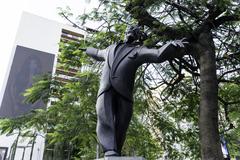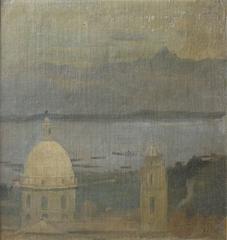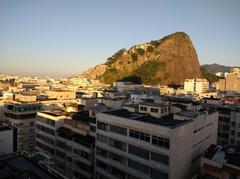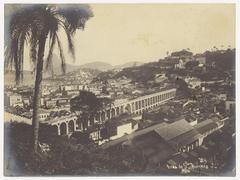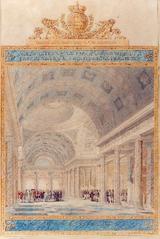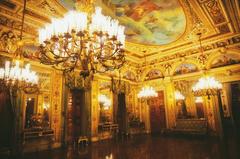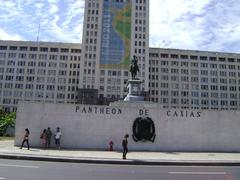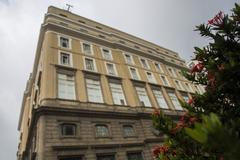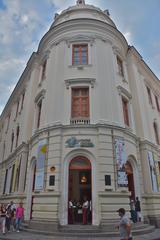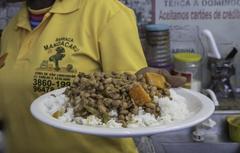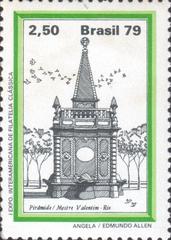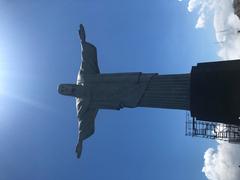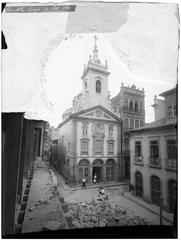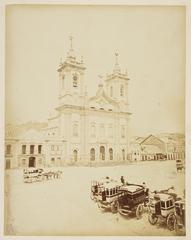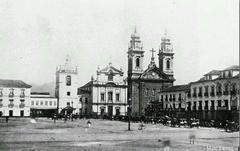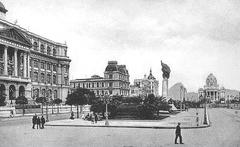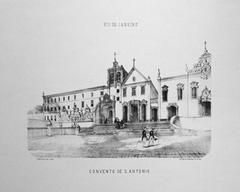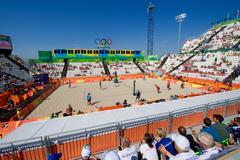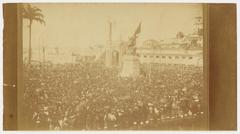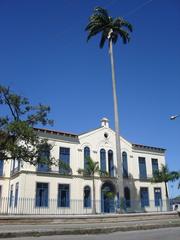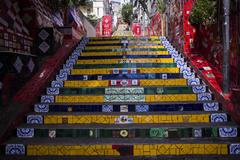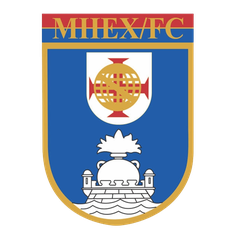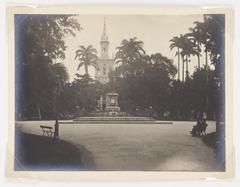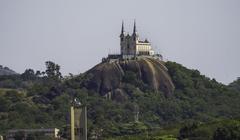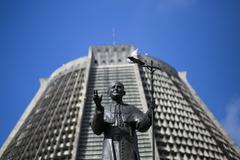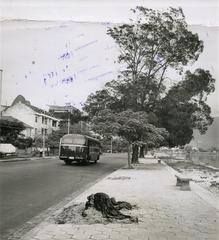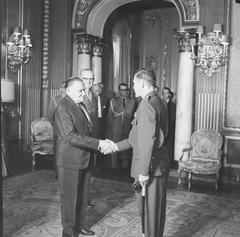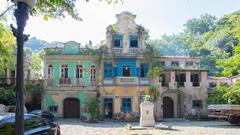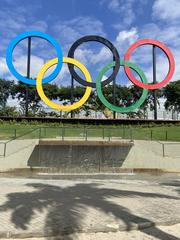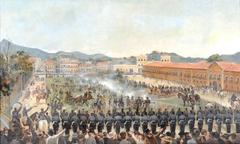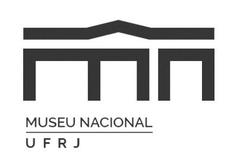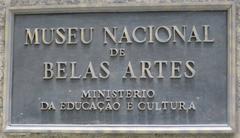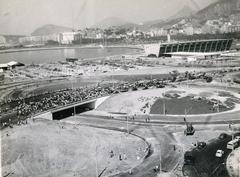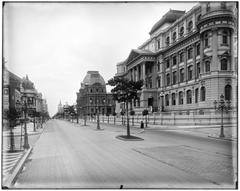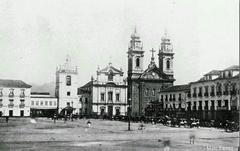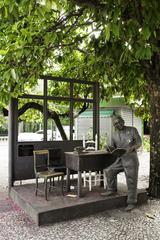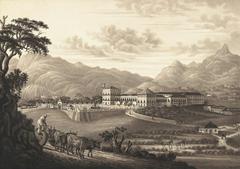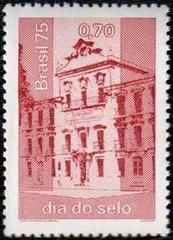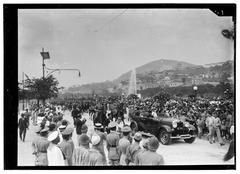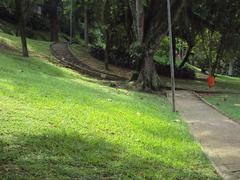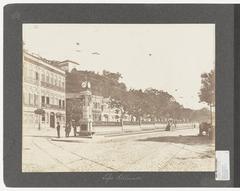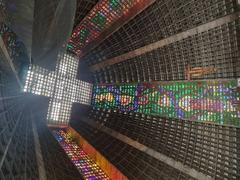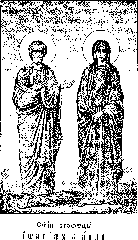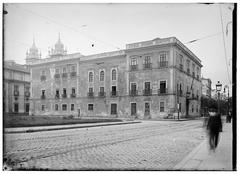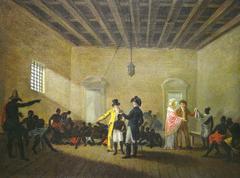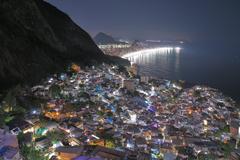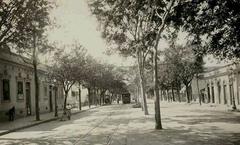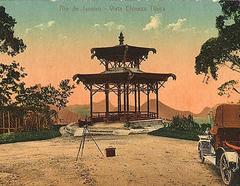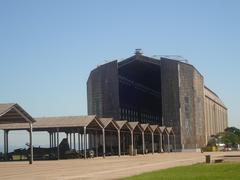Comprehensive Guide to Visiting Praça Muhammad Ali, Rio de Janeiro, Brazil
Date: 23/07/2024
Introduction
Praça Muhammad Ali in Rio de Janeiro, Brazil, stands as a tribute to the legendary American boxer Muhammad Ali, honoring his contributions to sports, civil rights, and humanitarian efforts. Named in 2016 shortly after Ali’s death, this square captures the essence of Ali’s global influence and the profound impact he had on the people of Brazil. Ali’s visits to Brazil, particularly his first in 1971, resonated deeply with the nation, especially the Afro-Brazilian community, who saw him as a symbol of resistance and empowerment. The square was inaugurated on June 3, 2017, marking the first anniversary of Ali’s death, and has since become a cultural and historical landmark in Rio de Janeiro. Featuring a statue of Ali, murals, and plaques, Praça Muhammad Ali not only commemorates the boxer’s life and career but also serves as a hub for cultural events and community gatherings. The square’s design reflects the vibrancy of Rio de Janeiro and the enduring spirit of Muhammad Ali. (BBC, The Guardian)
Table of Contents
- Historical Background of Praça Muhammad Ali
- Visitor Information
- Impact on the Community
- Commemorative Events
- Future Prospects
- FAQ
Historical Background of Praça Muhammad Ali
Origins and Naming
Praça Muhammad Ali, located in Rio de Janeiro, Brazil, is a relatively recent addition to the city’s rich tapestry of public spaces. The square was named in honor of the legendary American boxer Muhammad Ali, who visited Brazil multiple times and left a lasting impression on the nation. The decision to name the square after Ali was made in 2016, shortly after his death, as a tribute to his contributions to sports and his global influence as a humanitarian and civil rights activist.
Historical Significance
The square’s naming is significant not only because of Ali’s global stature but also due to the historical context of his visits to Brazil. Muhammad Ali first visited Brazil in 1971, shortly after his return to boxing following a three-year suspension for refusing to be drafted into the Vietnam War. His visit was a major event, drawing massive crowds and media attention. Ali’s charisma and his stance on civil rights resonated deeply with many Brazilians, particularly those in the Afro-Brazilian community who saw him as a symbol of resistance and empowerment.
Development and Inauguration
The development of Praça Muhammad Ali was part of a broader urban renewal project aimed at revitalizing public spaces in Rio de Janeiro. The square was officially inaugurated on June 3, 2017, marking the first anniversary of Muhammad Ali’s death. The inauguration ceremony was attended by local dignitaries, sports figures, and members of the public, reflecting the widespread admiration for Ali in Brazil.
Architectural and Cultural Elements
Praça Muhammad Ali is designed to be a multifunctional space that reflects both the spirit of its namesake and the cultural vibrancy of Rio de Janeiro. The square features a statue of Muhammad Ali in a classic boxing pose, symbolizing his prowess in the ring and his fighting spirit. The statue was created by a renowned Brazilian sculptor and serves as a focal point for visitors.
In addition to the statue, the square includes several murals and plaques that highlight key moments in Ali’s life and career. These artistic elements are designed to educate visitors about Ali’s legacy and to inspire future generations. The square also hosts cultural events, including boxing exhibitions, musical performances, and public lectures, further cementing its role as a cultural hub.
Visitor Information
Visiting Hours and Tickets
Praça Muhammad Ali is open to the public 24/7, providing ample opportunity for both residents and tourists to visit at their convenience. There is no entry fee to access the square, making it an accessible destination for everyone.
Travel Tips
The square is easily accessible by various modes of transportation, including buses and taxis. For those using public transportation, the nearest metro station is a short walk away. It’s advisable to visit during the day to fully appreciate the artistic elements and to participate in any ongoing events.
Nearby Attractions
Located in the vibrant city of Rio de Janeiro, Praça Muhammad Ali is in close proximity to other historical and cultural sites. These include the iconic Christ the Redeemer statue, Sugarloaf Mountain, and the historic neighborhood of Santa Teresa.
Accessibility
The square is designed to be inclusive and accessible to all visitors, including those with disabilities. Ramps and smooth pathways ensure that everyone can enjoy the space without any hindrance.
Special Events and Guided Tours
Praça Muhammad Ali hosts a variety of special events throughout the year, including commemorative celebrations on June 3rd, the anniversary of Ali’s death. Guided tours are available, providing visitors with in-depth information about Muhammad Ali’s legacy and the significance of the square.
Popular Photographic Spots
The statue of Muhammad Ali and the vibrant murals are popular spots for photographs. Visitors are encouraged to capture their memories and share them on social media, further promoting the square’s cultural significance.
Impact on the Community
The establishment of Praça Muhammad Ali has had a significant impact on the local community. It has become a popular gathering place for residents and tourists alike, fostering a sense of community and pride. The square’s dedication to Muhammad Ali has also sparked discussions about social justice and equality, themes that were central to Ali’s life and work.
Moreover, the square has contributed to the economic revitalization of the surrounding area. Local businesses have benefited from the increased foot traffic, and the square has become a focal point for tourism in Rio de Janeiro. The positive economic impact underscores the importance of public spaces in urban development and community building.
Commemorative Events
Since its inauguration, Praça Muhammad Ali has hosted several commemorative events that celebrate Ali’s legacy and promote social causes. These events include annual celebrations on June 3rd, the anniversary of Ali’s death, which feature speeches, performances, and community activities. The square also serves as a venue for events that address issues such as racial equality, youth empowerment, and sportsmanship, aligning with Ali’s lifelong advocacy for these causes.
Future Prospects
Looking ahead, Praça Muhammad Ali is poised to continue its role as a dynamic and meaningful public space in Rio de Janeiro. Plans are underway to expand the square’s facilities and to introduce new programs that engage the community and attract visitors. These initiatives aim to preserve and enhance the square’s historical and cultural significance, ensuring that Muhammad Ali’s legacy continues to inspire and uplift future generations.
FAQ
What are the visiting hours for Praça Muhammad Ali?
Praça Muhammad Ali is open 24/7 for visitors to enjoy at any time.
Is there an entry fee to visit Praça Muhammad Ali?
No, there is no entry fee. The square is open to the public free of charge.
How can I get to Praça Muhammad Ali?
The square is accessible via public transportation, including buses and the nearby metro station. Taxis and rideshare services are also convenient options.
Are there guided tours available?
Yes, guided tours are available and provide valuable insights into Muhammad Ali’s legacy and the significance of the square.
What are some nearby attractions?
Nearby attractions include Christ the Redeemer, Sugarloaf Mountain, and the historic Santa Teresa neighborhood.
Conclusion
Praça Muhammad Ali has firmly established itself as an integral part of Rio de Janeiro’s cultural landscape. It not only honors Muhammad Ali but also serves as a dynamic public space that fosters community engagement and cultural expression. The square’s impact on the local community is profound, driving both social discussions on equality and economic revitalization through increased tourism and local business patronage. With plans to expand its facilities and introduce new programs, Praça Muhammad Ali is set to continue its role as a beacon of inspiration and cultural significance. Visitors to Rio de Janeiro are encouraged to explore this vibrant square, participate in its events, and reflect on the enduring legacy of Muhammad Ali. (New York Times, Reuters)
